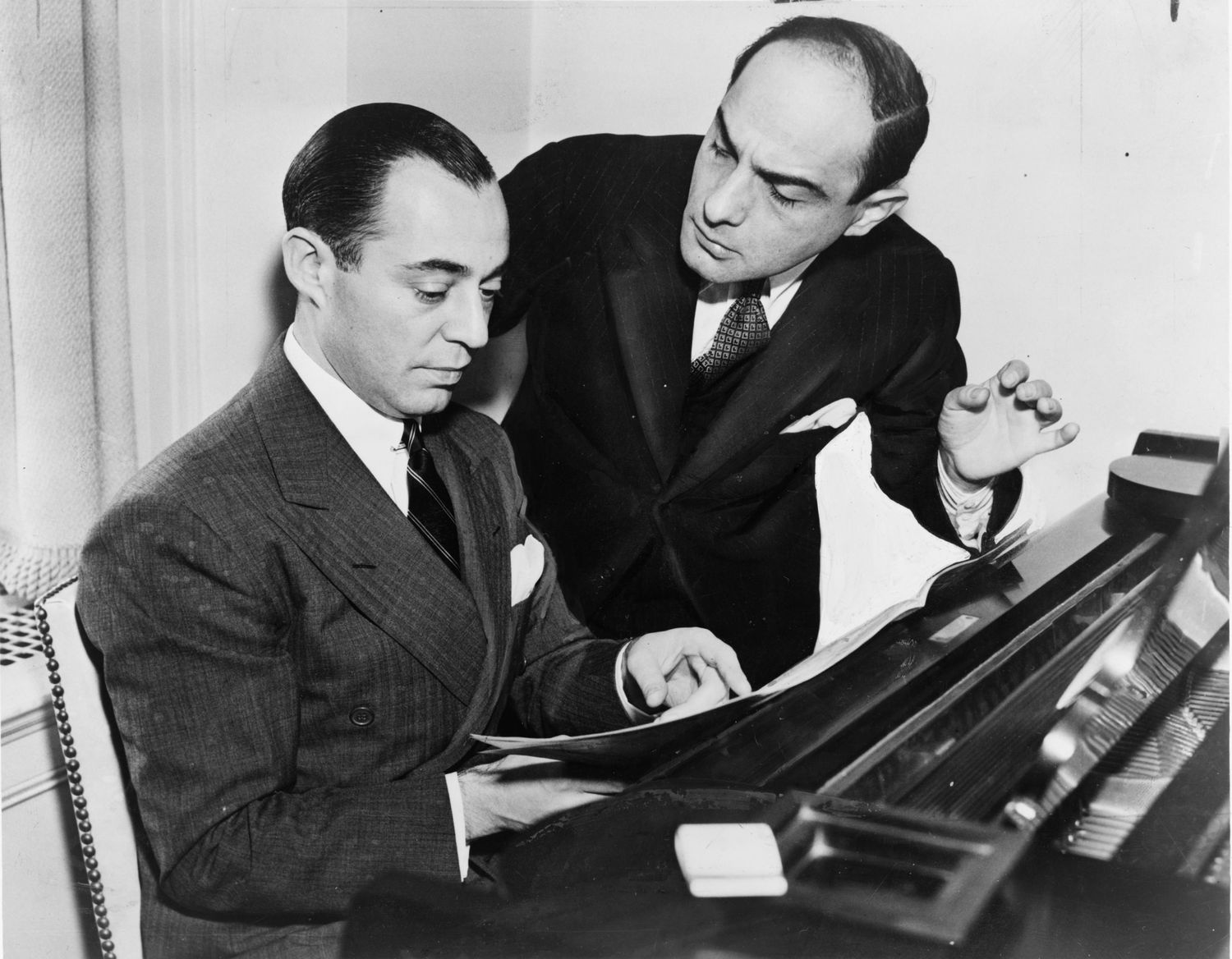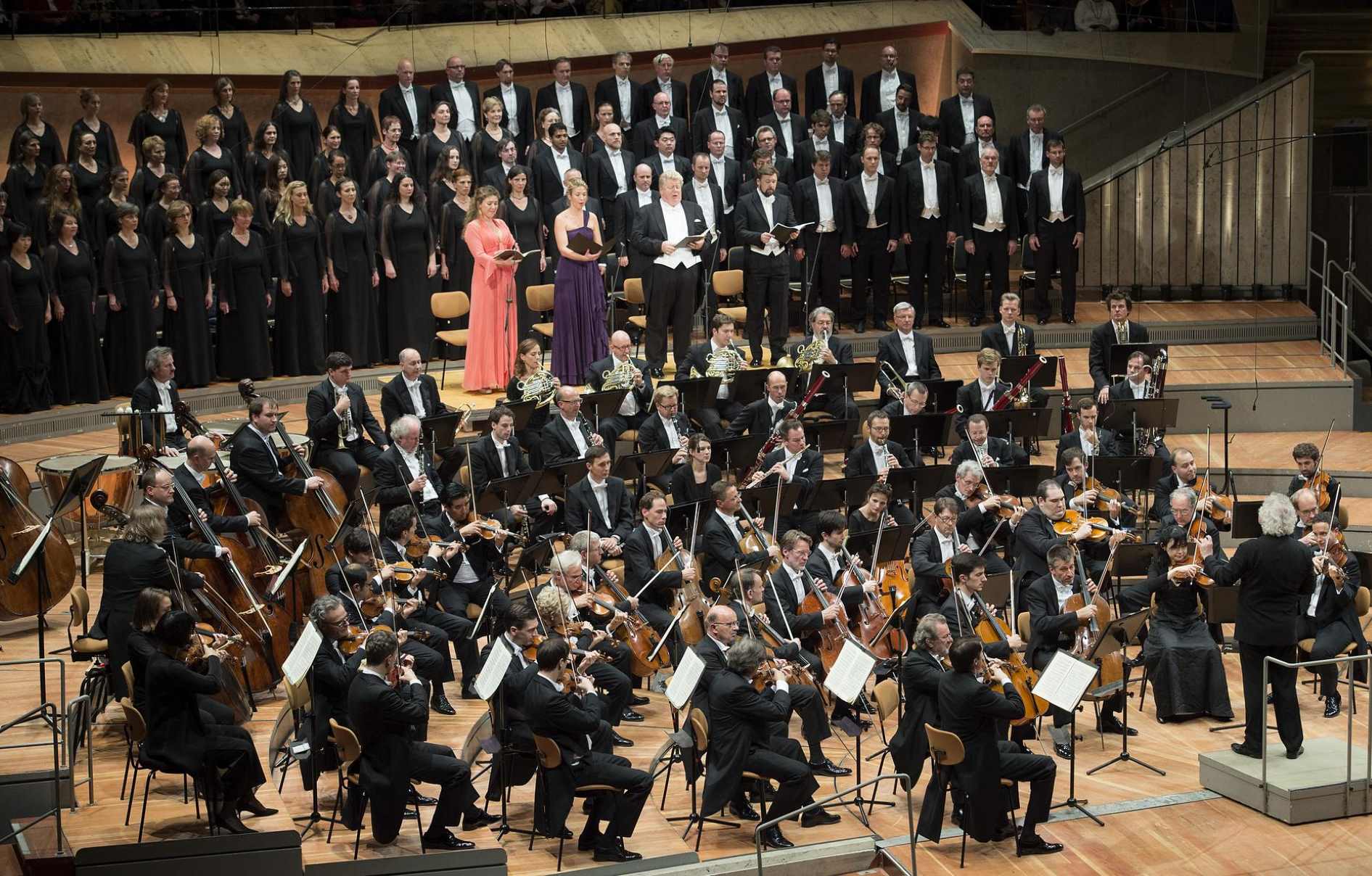Home>Production & Technology>Producer>What Is The Difference Between A Music Producer And Manager


Producer
What Is The Difference Between A Music Producer And Manager
Published: March 6, 2024
Discover the key disparities between a music producer and manager. Learn about their roles, responsibilities, and how they contribute to an artist's success. Gain insights into the crucial differences in the music industry.
(Many of the links in this article redirect to a specific reviewed product. Your purchase of these products through affiliate links helps to generate commission for AudioLover.com, at no extra cost. Learn more)
Table of Contents
Introduction
In the dynamic world of the music industry, the roles of a music producer and a music manager are often intertwined, leading to confusion about their distinct responsibilities. While both positions play a crucial part in an artist's career, their functions differ significantly. Understanding the disparities between a music producer and a music manager is essential for aspiring musicians, industry professionals, and music enthusiasts alike.
Music producers and managers serve distinct yet complementary roles in the music ecosystem, each contributing unique expertise to the success of an artist. Delving into the specifics of these roles sheds light on the diverse skill sets and responsibilities required for each position. By discerning the differences between a music producer and a music manager, individuals can gain a deeper appreciation for the multifaceted nature of the music industry and the collaborative efforts that drive artistic endeavors forward.
The following exploration will provide a comprehensive overview of the roles, responsibilities, and relationships of music producers and managers. By examining their distinct contributions to the music industry, we can gain valuable insights into the intricate and symbiotic connections that underpin the creation and promotion of music. Let's embark on a journey to unravel the unique domains of music production and artist management, uncovering the pivotal roles played by music producers and managers in shaping the vibrant tapestry of the music landscape.
Role of a Music Producer
A music producer is a linchpin in the creative process of producing music. Their role extends far beyond the confines of a traditional studio, encompassing a diverse array of responsibilities that are instrumental in shaping the artistic vision of a musical project. At the heart of their duties lies the task of translating the artist's musical concepts into tangible, high-quality recordings that resonate with audiences.
Music producers are akin to architects, meticulously crafting the sonic landscape of a song or album. They are entrusted with the crucial task of overseeing the technical and artistic aspects of the recording process, from conceptualization to the final mix. This involves collaborating with artists to refine their musical ideas, selecting suitable studio environments, and coordinating with sound engineers to capture the desired sound.
Moreover, music producers often serve as mentors and creative catalysts for artists, offering valuable insights and guidance to enhance the overall musical output. They bring a wealth of experience and expertise to the table, steering the creative direction of a project while nurturing the artistic growth of the talent involved. This multifaceted role demands a keen understanding of musical genres, production techniques, and the ability to adapt to the ever-evolving landscape of the music industry.
In addition to their creative contributions, music producers are adept at leveraging their technical prowess to harness the full potential of recording equipment and software. Their proficiency in utilizing state-of-the-art technology and studio resources is pivotal in achieving the desired sonic aesthetic and production values. From capturing pristine vocal performances to sculpting intricate soundscapes, their technical acumen is indispensable in realizing the sonic ambitions of an artist.
Furthermore, music producers often collaborate with a diverse array of musicians, songwriters, and instrumentalists, fostering a collaborative environment that nurtures creativity and innovation. By fostering a harmonious synergy among the various stakeholders involved in a project, music producers play a pivotal role in fostering an environment conducive to artistic exploration and musical excellence.
In essence, the role of a music producer transcends the confines of a conventional job description, encompassing a blend of artistic, technical, and interpersonal skills. Their ability to navigate the intricate terrain of music production, coupled with their unwavering dedication to realizing the artistic vision of musicians, underscores the indispensable role they play in shaping the sonic tapestry of the music industry.
Role of a Music Manager
A music manager assumes a pivotal role in the career trajectory of an artist, serving as a strategic architect and a steadfast ally in navigating the multifaceted landscape of the music industry. Unlike a music producer who primarily focuses on the creative aspects of music production, a music manager is primarily concerned with the business and administrative facets of an artist's career. Their overarching objective is to safeguard the interests of the artist, cultivate opportunities for professional growth, and steer the trajectory of their career towards sustained success.
At the core of their responsibilities lies the task of overseeing the day-to-day affairs of an artist, ranging from scheduling performances and studio sessions to negotiating contracts and managing financial matters. Music managers act as the linchpin between artists and industry professionals, leveraging their network of contacts to secure lucrative opportunities and strategic partnerships that elevate the artist's profile and advance their career.
Moreover, music managers play a pivotal role in developing and executing comprehensive career strategies for artists, tailoring their approach to align with the unique strengths and aspirations of each individual. This encompasses devising marketing initiatives, coordinating promotional campaigns, and orchestrating media appearances to bolster the artist's visibility and cultivate a robust fan base.
Furthermore, music managers are adept at navigating the intricate terrain of contract negotiations, ensuring that artists are fairly compensated for their creative endeavors while safeguarding their long-term interests. Their keen understanding of industry practices and legal nuances equips them to advocate for favorable terms on behalf of artists, thereby fortifying their financial well-being and professional standing.
Additionally, music managers serve as mentors and confidants for artists, offering invaluable guidance, and support to navigate the complexities of the music industry. Their role extends beyond the realm of business, encompassing emotional support and strategic counsel to empower artists in making informed decisions that resonate with their artistic vision and long-term aspirations.
In essence, the role of a music manager is multifaceted, demanding a nuanced blend of business acumen, strategic foresight, and unwavering dedication to the success and well-being of artists. Their ability to navigate the intricate web of the music industry while championing the interests of artists underscores the indispensable role they play in shaping the professional trajectory and artistic legacy of musicians.
Responsibilities and Duties
Music Producer:
A music producer shoulders a diverse array of responsibilities that are pivotal in shaping the sonic landscape of a musical project. Their primary duty revolves around collaborating with artists to actualize their creative vision, serving as a conduit for translating musical concepts into tangible recordings. This involves guiding artists through the intricacies of the recording process, offering constructive feedback, and harnessing their technical expertise to achieve optimal sonic results. Moreover, music producers are tasked with selecting suitable recording environments, coordinating with sound engineers, and overseeing the post-production phase to ensure the seamless integration of musical elements.
Furthermore, music producers are entrusted with the meticulous task of sculpting the sonic aesthetic of a song or album, harnessing their creative prowess to elevate the overall musical experience. This encompasses orchestrating arrangements, refining musical compositions, and imbuing tracks with a distinct sonic identity that resonates with audiences. Their adeptness in leveraging cutting-edge recording equipment and software is instrumental in achieving pristine sound quality and production values, thereby enhancing the sonic allure of the music.
In addition to their creative contributions, music producers play a pivotal role in fostering a collaborative environment, working closely with musicians, songwriters, and instrumentalists to cultivate an atmosphere conducive to artistic exploration and innovation. Their ability to inspire creativity, harmonize diverse musical elements, and steer the trajectory of a project towards artistic excellence underscores the multifaceted nature of their role.
Music Manager:
The responsibilities of a music manager revolve around safeguarding the professional interests of artists and orchestrating strategic initiatives to propel their career forward. Central to their duties is the meticulous coordination of an artist's schedule, encompassing performances, studio sessions, and promotional appearances. This entails liaising with various stakeholders, including booking agents, promoters, and publicists, to orchestrate a seamless and impactful presence for the artist within the industry.
Moreover, music managers are adept at devising comprehensive career strategies tailored to the unique strengths and aspirations of each artist. This involves crafting marketing initiatives, negotiating contracts, and cultivating strategic partnerships to bolster the artist's visibility and commercial appeal. Their astute business acumen and industry insights empower them to navigate the complexities of the music business, identifying lucrative opportunities and fostering sustainable growth for their clients.
Furthermore, music managers play a pivotal role in advocating for artists' interests during contract negotiations, ensuring that they are fairly compensated for their creative endeavors while mitigating potential risks. Their unwavering commitment to the financial well-being and professional advancement of artists is exemplified through their adeptness in securing favorable terms and safeguarding the long-term trajectory of their careers.
In essence, the responsibilities and duties of music producers and managers encompass a broad spectrum of creative, technical, and strategic facets, each contributing to the holistic development and success of artists within the music industry. Their collaborative efforts serve as a testament to the symbiotic relationship between creative expression and strategic stewardship, underpinning the vibrant tapestry of the music landscape.
Skills and Qualifications
Music Producer:
A proficient music producer possesses a diverse skill set that encompasses technical expertise, artistic acumen, and interpersonal finesse. Their proficiency in audio engineering, sound design, and music production software is pivotal in realizing the sonic vision of artists. Furthermore, a keen understanding of musical genres, arrangement techniques, and compositional nuances empowers music producers to sculpt compelling soundscapes that resonate with audiences across diverse demographics. The ability to collaborate effectively with artists, songwriters, and instrumentalists is paramount, necessitating strong communication skills, adaptability, and a keen ear for musical nuances. Additionally, a deep-seated passion for music, coupled with an unwavering commitment to artistic excellence, underpins the ethos of a skilled music producer. While formal education in music production or audio engineering can provide a solid foundation, practical experience and a demonstrable portfolio of successful projects are equally crucial in establishing credibility within the industry.
Music Manager:
The role of a music manager demands a nuanced blend of business acumen, strategic foresight, and unwavering dedication to the success and well-being of artists. Proficiency in contract negotiation, financial management, and industry networking is pivotal in safeguarding the professional interests of artists and cultivating lucrative opportunities for their career advancement. Furthermore, adeptness in devising comprehensive career strategies, marketing initiatives, and promotional campaigns requires a keen understanding of market trends, audience dynamics, and industry best practices. Effective communication, negotiation, and leadership skills are essential for liaising with industry professionals, negotiating favorable terms, and advocating for the long-term interests of artists. Moreover, a deep-seated passion for nurturing talent, coupled with a steadfast commitment to the artistic integrity of musicians, underscores the ethos of a skilled music manager. While formal education in business management or music industry studies can provide a solid foundation, practical experience, and a proven track record of successful artist management are instrumental in establishing credibility and fostering trust within the industry.
In essence, the roles of music producers and managers demand a rich tapestry of skills, qualifications, and experiential insights, each contributing to the holistic development and success of artists within the dynamic realm of the music industry.
Relationship with Artists
Music producers and managers forge distinct yet symbiotic relationships with artists, each characterized by unique dynamics and collaborative synergies that underpin the success and artistic evolution of musicians.
Music Producer:
A music producer's relationship with artists is akin to a creative partnership, rooted in mutual respect, artistic exploration, and a shared commitment to realizing the sonic vision of a musical project. Central to this dynamic is the producer's role as a mentor and catalyst for artistic growth, offering invaluable guidance, constructive feedback, and unwavering support to nurture the creative endeavors of artists. Their ability to inspire and elevate the artistic output of musicians fosters a collaborative environment that encourages experimentation, innovation, and the seamless integration of diverse musical elements. Moreover, music producers leverage their technical prowess and creative acumen to coalesce the artistic aspirations of artists, sculpting soundscapes that encapsulate the essence of their musical expressions. This collaborative synergy between music producers and artists is underpinned by a shared passion for musical excellence, a harmonious exchange of ideas, and an unwavering dedication to realizing the full potential of a musical project.
Music Manager:
The relationship between a music manager and artists is characterized by strategic stewardship, unwavering advocacy, and a steadfast commitment to advancing the career trajectory of musicians. Music managers serve as confidants and allies, offering strategic counsel, emotional support, and a comprehensive framework for professional growth. Their role extends beyond the realm of business, encompassing a deep understanding of an artist's aspirations, creative ethos, and long-term career objectives. This intimate understanding forms the bedrock of a collaborative relationship built on trust, transparency, and a shared vision for sustained success. Furthermore, music managers act as ambassadors for artists, leveraging their industry insights, networking acumen, and negotiation skills to secure lucrative opportunities, foster strategic partnerships, and safeguard the professional interests of their clients. This collaborative alliance between music managers and artists is emblematic of a unified pursuit of artistic excellence, strategic foresight, and a shared commitment to realizing the full potential of an artist's career.
In essence, the relationships between music producers, managers, and artists epitomize the collaborative spirit that underpins the music industry, weaving a tapestry of creative synergy, strategic stewardship, and unwavering dedication to the artistic legacy and professional advancement of musicians.
Conclusion
In conclusion, the distinction between a music producer and a music manager is pivotal in understanding the multifaceted dynamics of the music industry. The role of a music producer revolves around shaping the sonic landscape of a musical project, infusing it with artistic vision, technical prowess, and a collaborative spirit that nurtures the creative aspirations of artists. On the other hand, a music manager serves as a strategic architect, safeguarding the professional interests of artists, orchestrating career strategies, and advocating for their long-term success within the competitive realm of the music business.
The symbiotic relationships between music producers, managers, and artists underscore the collaborative spirit that underpins the music industry, weaving a tapestry of creative synergy, strategic stewardship, and unwavering dedication to the artistic legacy and professional advancement of musicians. Their collective efforts culminate in the seamless fusion of creative expression and strategic foresight, propelling artists towards sustained success and artistic excellence.
Aspiring musicians, industry professionals, and music enthusiasts can gain valuable insights from the distinct roles, responsibilities, and relationships of music producers and managers. By discerning the unique contributions of these pivotal figures, individuals can develop a deeper appreciation for the intricate tapestry of the music landscape and the collaborative efforts that drive artistic endeavors forward.
In essence, the roles of music producers and managers are emblematic of the multifaceted nature of the music industry, each contributing unique expertise to the success of artists. Their collaborative efforts serve as a testament to the symbiotic relationship between creative expression and strategic stewardship, underpinning the vibrant tapestry of the music landscape. This nuanced understanding illuminates the profound impact of music producers and managers in shaping the artistic legacy and professional trajectory of musicians, enriching the vibrant tapestry of the music industry.











